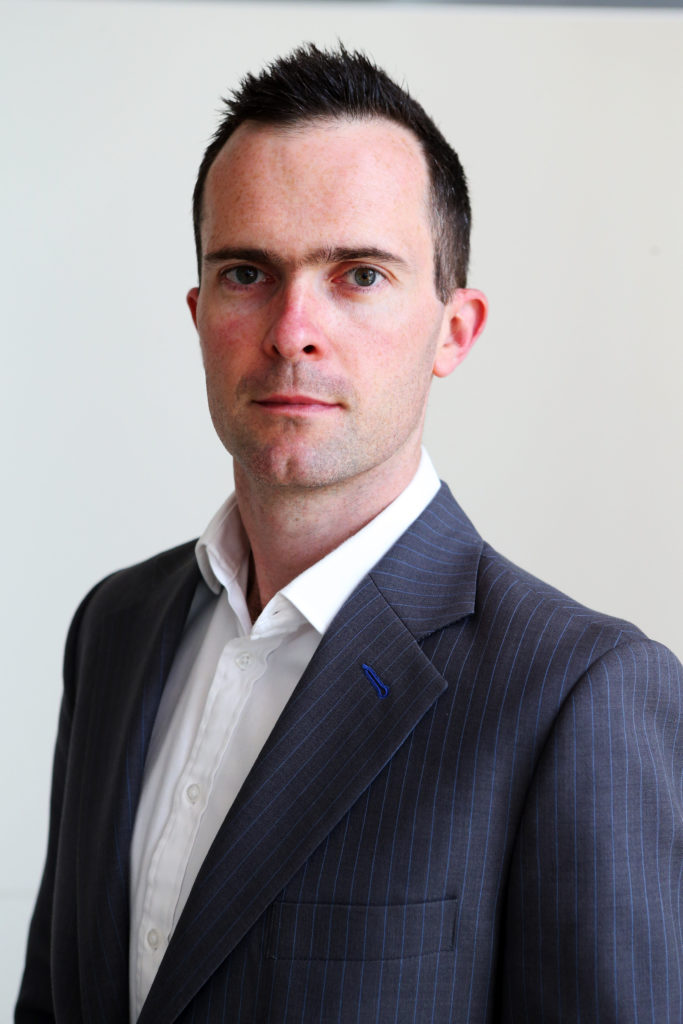Dan Box is the producer of Bowraville, and an award-winning national crime reporter with the Australian newspaper, and is based in Sydney. He has previously worked for the Sunday Times in London and the BBC, and is also the author of Carry Me Home, a book about the life and death of Private Jake Kovco, the first Australian soldier killed in Iraq.
He spoke to us about the evocative power of sound, accountability to your audience and how the sound of an elevator’s doors closing can be the sound of another opening.

What piece of audio has had the most profound effect on you – as a listener, as an audio maker or both?
Strange as it may be, it’s the sound of an elevator’s doors closing in a BBC Radio 4 documentary (I forget the name of the doco, or even what it was about). As a listener, that everyday sound transported me into that moment in time – it was such an easy thing to overlook but it really set the scene. I subsequently spoke to the producer, who told me this simple sound effect was pulled together using something like a dozen separate recordings. It just showed me how evocative audio can be, and how much hard work can go into getting it right.
Where did the idea for Bowraville come from?
I’d been reporting on the Bowraville murders on and off for a couple of years before trying the podcast, and it had been hard to get people to sit up and take notice. Then, in December 2015, I worked with a photographer who filmed the murdered children’s families’ reaction to the latest in a long line of disappointments relating to the case. I remember showing the short video clip to my colleagues – the emotion in the families’ voices and in their faces had an electric effect. It was then I realised you had to find a different way to approach this, by letting the families tell the story themselves.
What was your favourite part of making the podcast?
I was amazed at how much effort the children’s families put into the podcast. People travelled for hours to meet us and tell their stories, even though they knew it might not have any effect. It made us realise we had to do everything we could to get it right in return.
What was the hardest part?
It was a lot of work. Coming from a background in print journalism, we didn’t really appreciate how much was involved, or how to go about it. It meant a lot of early mornings, late nights and a few weekends.
People travelled for hours to meet us and tell their stories, even though they knew it might not have any effect
What’s the best thing about working with sound?
The way it captures the imagination. I don’t think anything else comes close.
What’s the best advice you’ve received about podcasting?
I’m sure you’ve heard this before but its ‘show don’t tell’. It took me a while to work out what that meant, but it’s absolutely right.
What’s been your biggest lesson as a producer so far?
To work collaboratively. As a print reporter, you get used to working a lot on your own. On the Bowraville podcast, I was lucky to work with a great producer, Eric George, and I learnt a lot from not telling him how to do it (not that he would necessarily have listened). We also got some great advice from various people who listened to early cuts of the first episode and gave us suggestions on where to take it next.
Do you interact with your audience, or receive feedback or criticism about your work?
Yes and happily (though with email and social media, you probably couldn’t avoid it if you wanted to). As reporters, I think we are accountable to both those people we are reporting on and those we are reporting too. So it is good to hear back from both, and it does change what we do.
If you could go out to dinner with any audio maker, who would it be – and what would you talk about?
Simon Elmes, who recently retired from the BBC. He’s the guy who put together that sound of the elevator doors closing and personifies the passion for audio that is behind a lot of great documentaries. I’d ask him what he is listening to at the moment.
What are you listening to at the moment?
This American Life; Criminal; Mountain. I recently finished Untold.
What’s your favourite Australian podcast, and why?
I thought Science Vs was phenomenal. It found a new way of reporting on big issues, and changed the way I looked at the medium.
What do you think is unique about Australian audio?
I think there is a distinctly Australian world of stories to tell
What’s next for you as a producer?
As a listener, I’m looking forward to the next podcast series from the Australian, produced by my colleague Eric George. I’ve heard an early cut and it sounds great. As a producer, I’m not yet sure, but I’m looking forward to finding out.
